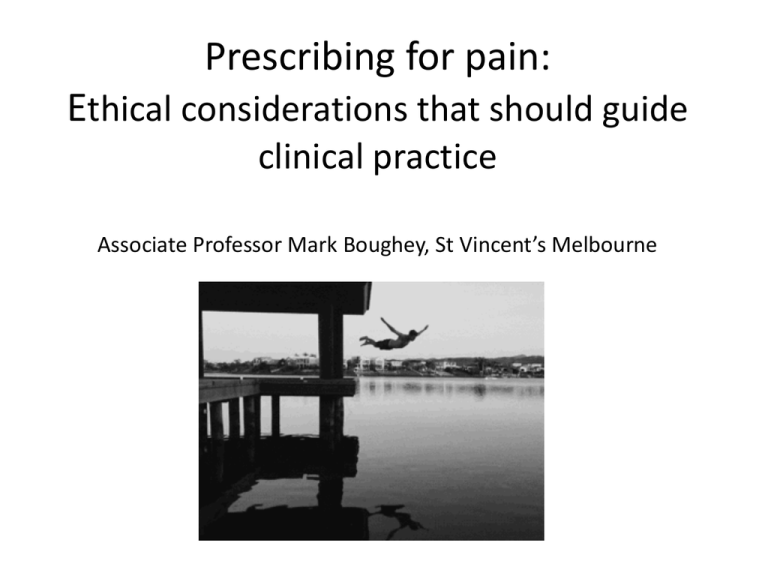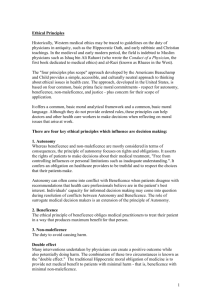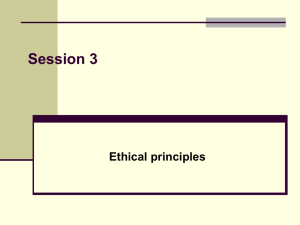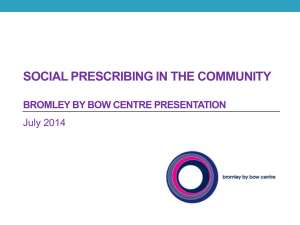BOUGHEY Mark. - Mercy Health
advertisement

Prescribing for pain: Ethical considerations that should guide clinical practice Associate Professor Mark Boughey, St Vincent’s Melbourne Approaching a patient & their problem: what guides your practice? Today’s aim • Demonstrate how you can frame practice and decision making within a clinical ethical basis • Think about the elements that come into play – make you conscious of what you may already be doing • Use pain prescribing as an exemplar Why pain: • Complex medical problem • Complex interplay between peripheral & central NS • Complex interplay between nociceptive, neuropathic and psychological/existential • Dealing with a variety of distinct pain entities-acute, chronic, progressive/palliative • Treatment modalities are multiple and come with risk/benefits that vary depending on what you are treating Approaching a patient & their problem: what guides your practice? Theory Practice ? Knowledge Action reflection Tools & algorithms Gut feeling Approaching a patient & their problem: what guides your practice? Theory Practice ? Ethical guidance Knowledge Action reflection Tools & algorithms Gut feeling My general approach to ethical considerations…… What does the patient want? What is going to help? What might hinder or harm? Who gets what? Patient views History Expectations Issues Autonomy Beneficence Non Maleficence Justice Evidence Guidance docs Consensus of opinion Experience Knowledge Legal/illegal Scope of practice System supports Availability My approach to ethical considerations when prescribing for pain …… What does the patient want? What is going to help? What might hinder or harm? Who gets what? Autonomy Beneficence Non Maleficence Justice My approach to ethical considerations when prescribing for pain …… What does the patient want? What is going to help? What might hinder or harm? Who gets what? Autonomy Beneficence Non Maleficence Justice Patient views History Expectations Issues My approach to ethical considerations when prescribing for pain …… What does the patient want? What is going to help? What might hinder or harm? Who gets what? Autonomy Beneficence Non Maleficence Justice Evidence Guidance docs Consensus of opinion Experience Knowledge My approach to ethical considerations when prescribing for pain …… What does the patient want? What is going to help? What might hinder or harm? Who gets what? Autonomy Beneficence Non Maleficence Justice Legal/illegal Scope of practice System supports Availability What does it all mean? Practice Theory Knowledge Tools & algorithms Patient wants /needs What helps What harms Who gets what Gut feeling Opioids Non opioids Physical Psycho/spiritual Creativity New ways to solve new problems Flexibility How to cope when things go wrong Context Knowing when to do what Competence Basic skills Prescribing for pain: Ethical considerations that should guide clinical practice Associate Professor Mark Boughey, St Vincent’s Melbourne











